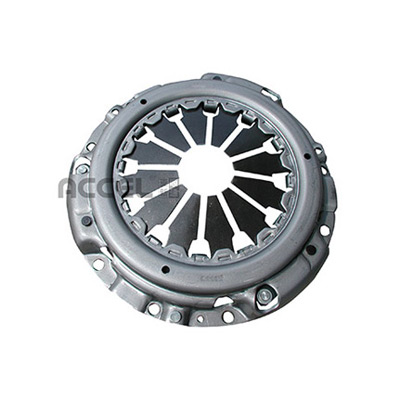- Arabic
- French
- Russian
- Spanish
- Portuguese
- Turkish
- Armenian
- English
- Albanian
- Amharic
- Azerbaijani
- Basque
- Belarusian
- Bengali
- Bosnian
- Bulgarian
- Catalan
- Cebuano
- Corsican
- Croatian
- Czech
- Danish
- Dutch
- Afrikaans
- Esperanto
- Estonian
- Finnish
- Frisian
- Galician
- Georgian
- German
- Greek
- Gujarati
- Haitian Creole
- hausa
- hawaiian
- Hebrew
- Hindi
- Miao
- Hungarian
- Icelandic
- igbo
- Indonesian
- irish
- Italian
- Japanese
- Javanese
- Kannada
- kazakh
- Khmer
- Rwandese
- Korean
- Kurdish
- Kyrgyz
- Lao
- Latin
- Latvian
- Lithuanian
- Luxembourgish
- Macedonian
- Malgashi
- Malay
- Malayalam
- Maltese
- Maori
- Marathi
- Mongolian
- Myanmar
- Nepali
- Norwegian
- Norwegian
- Occitan
- Pashto
- Persian
- Polish
- Punjabi
- Romanian
- Samoan
- Scottish Gaelic
- Serbian
- Sesotho
- Shona
- Sindhi
- Sinhala
- Slovak
- Slovenian
- Somali
- Sundanese
- Swahili
- Swedish
- Tagalog
- Tajik
- Tamil
- Tatar
- Telugu
- Thai
- Turkmen
- Ukrainian
- Urdu
- Uighur
- Uzbek
- Vietnamese
- Welsh
- Bantu
- Yiddish
- Yoruba
- Zulu
Jul . 23, 2024 14:54 Back to list
Exploring the Importance and Maintenance of Geely Timing Belts for Optimal Engine Performance
Understanding Geely Timing Belts Importance and Maintenance
Timing belts play a critical role in the functioning of an automobile engine. This is no exception when it comes to Geely vehicles, a popular brand known for its affordability and modern design. The timing belt is a crucial component that synchronizes the rotation of the crankshaft and camshaft, ensuring that the engine’s valves open and close at the correct times during each cylinder's intake and exhaust strokes. A malfunctioning timing belt can lead to severe engine damage, which emphasizes the importance of understanding and maintaining this key part.
The Role of the Timing Belt
In a Geely engine, the timing belt is responsible for controlling the timing of the engine's valves. The crankshaft rotates as fuel and air are compressed in the cylinder, and the timing belt ensures that the camshaft, which controls the opening and closing of the valves, rotates in sync. This synchronization is vital for smooth engine operation and optimal performance. If the timing belt fails, it can cause the engine's pistons to collide with the valves, leading to catastrophic damage that could require expensive repairs or even total engine replacement.
Signs of Timing Belt Wear
Regular inspection of the timing belt is essential for any Geely owner. Over time, timing belts can wear down and may need to be replaced to ensure reliability. Common signs of a failing timing belt include
1. Unusual Noises A ticking or slapping noise coming from the engine could indicate a problem with the timing belt. 2. Engine Misfires If the timing belt is not functioning correctly, engine misfires may occur due to improper valve timing. 3. Poor Engine Performance A noticeable decrease in engine performance or fuel efficiency can sometimes be traced back to a worn timing belt. 4. Check Engine Light If the check engine light activates, it might signal an issue with the timing belt along with other potential engine problems.
geely timing belt

Recommended Maintenance
Geely, like many automotive manufacturers, provides specific recommendations regarding the replacement interval for the timing belt. It is generally advisable to replace the timing belt every 60,000 to 100,000 kilometers, depending on the model and engine type. Consulting the owner’s manual is key to determining the correct interval for replacement.
In addition to timely replacement, regular maintenance checks should include inspections of the tensioner and pulleys associated with the timing belt. If these components are worn or damaged, they can compromise the performance of the timing belt, leading to premature failure.
Choosing Quality Parts
When replacing a timing belt, it’s important to use high-quality, OEM (Original Equipment Manufacturer) parts specific to Geely vehicles. While aftermarket parts may be cheaper, they might not provide the same level of reliability and performance. Investing in quality parts can save significant costs down the line by preventing failures and maintaining engine integrity.
Conclusion
For Geely vehicle owners, understanding the importance of the timing belt and its maintenance cannot be overstated. Regular inspections, adherence to replacement intervals, and attention to the signs of wear can greatly extend the life of the timing belt and ensure the smooth operation of the engine. By prioritizing this critical component, drivers can enjoy safe and reliable performance from their Geely vehicles for years to come. Ensuring that the timing belt and its related components are in optimal condition is key to preventing expensive repairs and enhancing overall vehicle longevity.
-
Upgrade Power Steering Pump Belt for Smooth, Quiet Operation
NewsAug.27,2025
-
Precision Timing Belt & Chain: Engine Performance & Durability
NewsAug.26,2025
-
Precision Lathe Drive Belts: Durable & Reliable Performance
NewsAug.25,2025
-
84.5 Serpentine Belt: Durable & Precision Fit for Your Engine
NewsAug.24,2025
-
Premium Ribbed Drive Belts for Quiet Power Transmission
NewsAug.23,2025
-
High-Performance Vehicle Timing Belt for Engine Precision
NewsAug.22,2025

